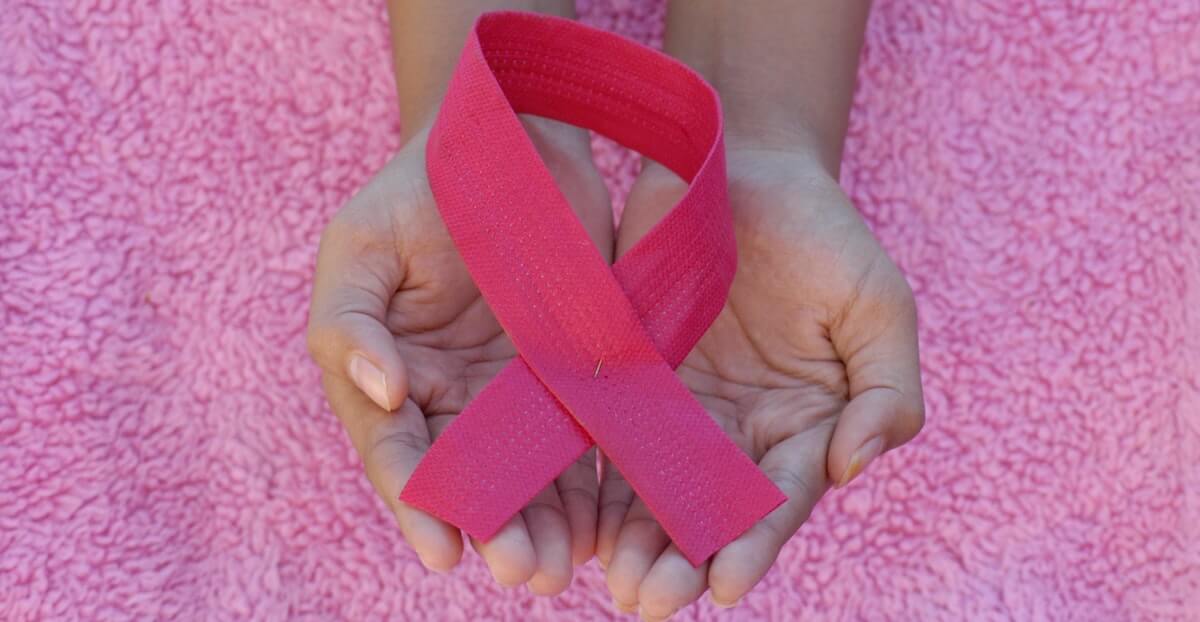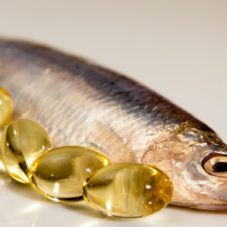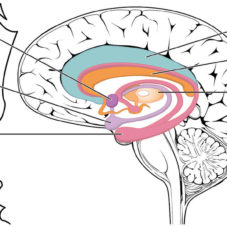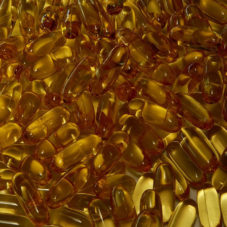Cancer doesn’t discriminate by age, race, or gender. It can run in a family or appear out of nowhere. It can show up when we’re least expecting it. It can turn an entire life upside down. And, it’s hard to kill. These are the traits that make cancer so feared and unpredictable. But let’s find out if omega-3 fish oil can help with cancer.
The Big C…
Cancer is a common disease but it’s still one of the hardest to treat. Unlike some of the other common diseases, it has no single cause or method of progression. It manifests in a variety of different ways, targeting different parts of the body and even moving throughout the body in the later stages. Cancer forms and acts differently depending on where in the body it appears, and that makes treatment a very complicated process.
On the surface, cancer seems quite simple. It forms when there is damage to the cell’s DNA. Healthy cells replicate at a steady pace to replace cells that have died. Cancerous cells replicate rapidly and build up into a mass called a tumor. The more the cancerous cell replicates, the more damaged the DNA becomes. It often has a ‘snowball effect’ quality – the bigger it gets, the faster it grows, and it just keeps going.
Cancerous cells have a big advantage over healthy cells when it comes to replicating and surviving. They produce proteins that create new blood vessels to carry more nutrients to them (known as angiogenesis), which helps them continue to grow, and they create enzymes that keep them from ageing so they don’t die off like normal cells.
The complicated part comes when the cell type is factored in. A liver cell is different from a brain cell, so a liver tumor is going to have traits that differ from a brain tumor. Some forms of cancers are aggressive and spread quickly while others have a slow progression. A few types of cancer are hormone-sensitive while others are not.
The variation comes from the fact that the cell types function differently, even when cancerous. However, they do have one common trait: they have to pull in nutrients. Most of our body’s nutrients come from what we eat, so diet can play a role in both the prevention and treatment of cancer. Fortunately, research shows that omega-3 fish oil helps cancer in a few different ways.
Omega-3 fish oil can help prevent cancer
Inflammation is one of the key factors in cancer formation. There has been a noted link between chronic inflammation and certain cancers such as skin cancer, prostate cancer, and colon cancer. When an area is repeatedly inflamed over a long span of time, the cells in that area may eventually become damaged. If the DNA in those cells becomes damaged enough, they can turn cancerous.
Omega-3 has medically acknowledged abilities to suppress inflammation. Omega-6 is pro-inflammatory and we tend to get a lot of it in our diets. In contrast, omega-3 is anti-inflammatory and we usually don’t get enough of it. Without omega-3 to keep it in check, omega-6 can lead to inflammation. By keeping the ratio of omega-3 and omega-6 equal, inflammation is kept under control. This helps regulate chronic inflammation. The effect this has on cancers has been seen in a few studies.
In 2011, a study was published that examined the risks for high-grade prostate cancer. It found that those who had a higher omega-6 to omega-3 ratio were at a significantly higher risk. Within the same year, omega-3 was shown to have a similar effect at preventing the formation of non-melanoma skin cancer. In response to UVB exposure, the skin becomes inflamed and this is caused by pro-inflammatory cytokines that can cause cell damage. Omega-3 was seen to lower the amount of those cytokines and prevent possible damage to the cells of the epidermis.
For skin cancers that had already formed, higher omega-3 levels were associated with a decrease in the size of the cancer. A study in 2015 indicated that this preventive effect also extended to colorectal cancer. Chronic inflammation is thought to be one of the leading causes of colorectal cancer, and the study found that those with a diet heavy in omega-3 were at a much lower risk for developing it.
Not only does omega-3 appear to reduce the risk of developing cancer but it may reduce the severity of cancer. In 2012, a clinical survey noted that renal cancer patients with lower levels of omega-3 had more aggressive tumors and a lower chance of survival. The conclusion isn’t entirely clear if lower omega-3 levels are caused by the cancer, or if the omega-3 deficiency played a role in heightening the aggression of the cancer, but there was clearly a link that needs further research.
Despite the large body of scientific evidence on omega-3’s preventative effects, when you actually type “omega-3 fish oil and cancer” into a Google search, the first few results you’ll see come with a headline of “Omega-3 leads to increased risk of prostate cancer”. This stems from a 2013 study, which quickly spread around the internet. However, many scientists and medical professionals have refuted these results. One major flaw found with the study is that it did not factor in lifestyles or other illnesses present. Cancer risk-raising factors, such as smoking, drinking, obesity, and compromised immune function, were not considered or included and this makes the results questionable. The claim that this study is flawed is supported by numerous studies that show a decreased risk of cancer in association with omega-3 intake.

Heightening the efficiency of standard treatment
Aside from playing a role in preventing the formation of cancer, omega-3 fatty acids may also be effective as a treatment aid. Over the course of multiple studies on a variety of different cancers, omega-3 supplementation has appeared to make standard treatment more effective.
With prostate cancer, a 2015 study resulted in a decrease of tumor size when used in combination to chemotherapy. The conclusion suggested that omega-3 actually helped the chemotherapy work more efficiently. This also holds true for the conclusion of studies involving the effects of omega on lung and colorectal cancer. With breast cancer, omega-3 was shown to improve the efficiency of anti-estrogens.
These studies indicate that adding omega-3 fish oil to a cancer treatment regimen can make the cancer more sensitive to standard treatment, leading to less toxic doses of chemotherapy drugs and preventing the long-lasting side effects that can stem from the type of medications used to treat cancer. This would have the potential to increase patient tolerance to treatment and raise the rates of survival.
Omega-3 fish oil helps kill cancer cells
Across the board, omega-3 has repeatedly been seen in association with the reduction of tumor size in all types of cancer. Both EPA and DHA, the two main omega-3 fatty acids, have been studied and they both appear effective. However, they affect different types of cancer.
EPA was indicated as being responsible for decreasing the risk of prostate cancer spreading. Patients with low-risk prostate cancer and a healthy amount of EPA in their system were shown to be less likely to have the cancer spread and infect other organs. With lung cancer, there was also a reduction of tumor size associated with EPA. This was also seen with skin cancers and colorectal cancer.
On the other hand, DHA was deemed responsible for tumor size reduction in breast cancer, oral cancers and brain cancer. Within studies involving each of the cancer types, there was a noted reduction in the number of cancerous cells and a delay of progression, even in hard to treat tumors.
Both fatty acids use the same basic mechanism to shrink the tumors. They prevented the tumors from creating new blood vessels, effectively cutting off their nutrient supply. Without nutrients, the tumor can’t grow and the cancer cells begin to die from starvation.

Protecting the quality of life
There are some cases where the treatment seems worse than the disease. This is often the case with cancer. Although a necessity, chemotherapy is extremely harsh on the body, and has a long list of side effects that can be extremely hard for patients to tolerate. Omega-3 can help ease some of those side effects.
A few studies have indicated that omega-3 raised the quality of life in patients undergoing lung cancer treatment. Cachexia is common with cancer patients. It’s weight loss and muscle wasting caused by a loss of appetite or the inability of the body to fully make use of nutrients. This leads to fatigue, feeling sickly, and can weaken the body to the point that chemotherapy is no longer an option.
One study showed that taking omega-3 supplement can lead to a better nutritional status in patients battling advanced lung cancer. Not only did it help them stay in treatment longer, but it lessened the severity of the side effects and allowed them to maintain a healthy weight and energy level.
The protection omega-3 offers the body was highly noted in association with brain cancers. The treatment for brain tumors can be damaging to the surrounding healthy neurons, leading to permanent loss of function in the area of the brain where the cancer formed. While omega-3 was seen to aid in killing the cancerous cells, it provided protection for the healthy neurons. This may lead to a lower risk of losing cognitive function over the course of the treatment.
Conclusion
All in all, omega-3 fish oil helps cancer. It has no harmful side effects, is needed as part of a healthy diet, and can be a beneficial aid to both the prevention and treatment of this scary disease. More research into the effects of omega-3 on cancer are needed to fully understand how it helps, but there is a strong and growing pile of evidence in support of omega-3 supplementation in combination with cancer treatment.
References
1. Black, H. (2012). Omega-3 fatty acids and non-melanoma skin cancer. Handbook of Diet, Nutrition and the Skin, 366-378.
2. Carlo, F., Witte, T., Hardman, W., & Claudio, P. (2013). Omega-3 Eicosapentaenoic Acid Decreases CD133 Colon Cancer Stem-Like Cell Marker Expression While Increasing Sensitivity to Chemotherapy. PLoS ONE.
3. Corsetto, P., Cremona, A., Montorfano, G., Jovenitti, I., Orsini, F., Arosio, P., & Rizzo, A. (2012). Chemical–Physical Changes in Cell Membrane Microdomains of Breast Cancer Cells After Omega-3 PUFA Incorporation. Cell Biochemistry and Biophysics, 64(1), 45-59.
4. Finocchiaro, C., Segre, O., Fadda, M., Monge, T., Scigliano, M., Schena, M., . . . Canuto, R. (2011). Effect of n-3 fatty acids on patients with advanced lung cancer: A double-blind, placebo-controlled study. British Journal of Nutrition, 108(2), 327-333.
5. Gleissman, H., Segerström, L., Hamberg, M., Ponthan, F., Lindskog, M., Johnsen, J., & Kogner, P. (2010). Omega-3 fatty acid supplementation delays the progression of neuroblastoma in vivo. International Journal of Cancer, 128(7), 1703-1711.
6. Ljungblad, L., Wickström, M., Johnsen, J., Kogner, P., & Gleissman, H. (2014). Abstract 3988: The omega-3 fatty acids DHA and EPA inhibit medulloblastoma growth. Cancer Research, 3988-3988.
7. Lou, Y., Peng, Q., Li, T., Medvecky, C., Lin, Y., Shih, W., . . . Lu, Y. (2011). Effects of high-fat diets rich in either omega-3 or omega-6 fatty acids on UVB-induced skin carcinogenesis in SKH-1 mice. Carcinogenesis, 32(7), 1078-1084.
8. Ma, I., Mouradian, M., Sorreta, A., Kang, S., & Pardini, R. (2015). Abstract 906: Decreasing omega-6 to omega-3 polyunsaturated fatty acid dietary ratios inhibit tumorigenesis in prostate cancer cells in vitro and in vivo. Cancer Research, 906-906.
9. Manni, A., El-Bayoumy, K., Skibinski, C., Thompson, H., Santucci-Pereira, J., Bidinotto, L., & Russo, J. (2013). Combination of Antiestrogens and Omega-3 Fatty Acids for Breast Cancer Prevention. BioMed Research International, 1-10.
10. Moreel, X., Allaire, J., Leger, C., Caron, A., Labonte, M., Lamarche, B., . . . Fradet, V. (2014). Prostatic and Dietary Omega-3 Fatty Acids and Prostate Cancer Progression during Active Surveillance. Cancer Prevention Research, 766-776.
11. Nikolakopoulou, Z., Nteliopoulos, G., Michael-Titus, A., & Parkinson, E. (2013). Omega-3 polyunsaturated fatty acids selectively inhibit growth in neoplastic oral keratinocytes by differentially activating ERK1/2. Carcinogenesis, 34(12), 2716-2725.
12. Oh, H., Jing, K., Shin, S., Kim, N., Jeong, S., Cho, E., . . . Lim, K. (2012). Abstract 1985: Omega-3 polyunsaturated fatty acids induce cell cytotoxicity through apoptosis and autophgy in brain cancer in vitro and in vivo. Cancer Research, 1985-1985.
13. Pan, Y., Pirman, D., Efuet, E., Rhea, P., Cartwright, C., Ravoori, M., . . . Yang, P. (2013). Abstract 3668: Chemopreventive effect of omega-3 fatty acid, EPA, in non-small cell lung cancer through formation of PGE 3 and inhibition of PI3kinase/mTOR pathways. Cancer Research Cancer Res, 3668-3668.
14. Song, M., Nishihara, R., Wu, K., Qian, Z., Kim, S., Sukawa, Y., . . . Chan, A. (2015). Marine -3 Polyunsaturated Fatty Acids and Risk of Colorectal Cancer According to Microsatellite Instability. Journal of the National Cancer Institute, 107(4).
15. Sosnowski, R., & Zawistowski, J. (2013). Re: Plasma Phospholipid Fatty Acids and Prostate Cancer Risk in the SELECT Trial. European Urology, 105(15), 1012-1012.
16. Suburu, J., Lim, K., Calviello, G., & Chen, Y. (2014). RE: Serum Phospholipid Fatty Acids and Prostate Cancer Risk in the SELECT Trial. Journal of the National Cancer Institute, 106(4).
17. Tasaki, S., Horiguchi, A., Asano, T., Kuroda, K., Sato, A., Asakuma, J., . . . Asano, T. (n.d.). 698 Low Levels Of Serum Omega-3 Polyunsaturated Fatty Acid Are Associated With Tumor Aggressiveness And Poor Prognosis In Renal Cell Carcinoma. The Journal of Urology.
18. Williams, C., Whitley, B., Hoyo, C., Grant, D., Iraggi, J., Newman, K., . . . Freedland, S. (2011). A high ratio of dietary n-6/n-3 polyunsaturated fatty acids is associated with increased risk of prostate cancer. Nutrition Research, 31(1), 1-8.
19. Unknown (Photographer). (2014 Sept). Cancer, Newspaper [digital image]. Retrieved from https://pixabay.com





